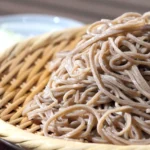Pretzels aren’t inherently constipating. However, considering several studies that link the low fiber content of food and sometimes high sodium ratio with constipation, pretzels may be found constipating for people dealing with constipation.
You can enjoy pretzels in moderate quantities by choosing an unsalted version over salted ones’, pairing them with high-fiber foods, and staying hydrated.
Want to learn more about pretzels’ gut gentleness?
Let’s discover how to savor your favorite heart-shaped snack without a risk of constipation.
What are Pretzels?
Pretzels are twisted knots of yeast bread, kinda like golden heart-shaped necklaces. They come in soft and chewy versions, perfect for dunking in mustard or crunchy hard ones, ideal for munching on the go.
Made with flour, yeast, and water, they get a special dip in alkaline lye before baking. This dip gives them that shiny brown coat. Some pretzels get sprinkled with salt, others with sugar or cinnamon, making them sweet or savory treats.
What May Make Pretzels Constipating for Some People?
Pretzels do not directly cause constipation (not villains at all), yet due to lack of fiber, they may add fuel to injury.
Here’s why:
Fiber
Dietary Guidelines for Americans require you to take 22-34 grams of fiber a day. It’s because higher fiber intake contributes to relieving constipation in the following ways:
- Improve stool movement in the colon as fiber lets stool absorb water, giving it a sponge-like property;
- Thrive short-chain fatty acids production for regulating the “gut-brain axis” speed up digested content movement in your gut;
Since pretzels lack fiber, they may prove challenging to get rid of once digested.
Sodium
Researchers have identified higher sodium intake as a factor in worsening constipation, as stated in a study published in MDPI in January 2022.
Sodium can draw water out of your gut, making stools drier and harder to pass.
Here is where pretzels come with a downside.
A typical serving of commercially made pretzels, like Super Pretzels, can contain a surprising 140 milligrams of sodium in unsalted versions and 1162 milligrams of sodium in salted versions! The amount is significantly higher than the recommended daily intake of 2300 milligrams of sodium for Americans.
Therefore, eating too many pretzels, especially salted ones, can contribute to constipation.
Over Indulgence
Let’s face it: pretzels are small and tempting. It’s easy to keep popping them in your mouth until the bag is empty – and that’s where trouble starts. Overeating any food, even healthy ones, can overwhelm your digestive system, leading to constipation’s unwanted visit.
So, are Pretzels Guaranteed to Give you Constipation?
Not necessarily; pretzels are not constipating food entirely. However, choosing a salted version over unsalted, overeating, eating without watching your water intake, or not incorporating fiber may cause some people to experience constipation. Mindful eating and the right choices can help you enjoy pretzels.
Why should you not Eat Too many Pretzels?
Overeating any food leads to health issues, and pretzels are no exception. Look at the nutrition facts of the Super Pretzels.

A 64-gram serving of pretzels has 34 grams of carbohydrates, 140 milligrams, and 1162 milligrams of sodium in unsalted and salted versions, respectively.
What does it mean?
A higher carbohydrate and sodium ratio of pretzels can expose you to certain health risks if eaten unmindfully for more extended periods.
Some of these can be:
- Pretzels lack fiber. So, eating too many pretzels can slow down intestines’ movement, leading to constipation.
- Pretzels, especially salted ones, are high in sodium. Higher sodium intake may raise your blood pressure, according to WHO, lead to cardiovascular problems, and cause water retention in the body, leading to kidney problems as well.
- Pretzels are high in calories, so overdoing it on pretzels can pack on the pounds.
- Pretzels have gluten. So, this gluten can trigger symptoms in people with celiac disease, causing bloating and discomfort.
- Pretzels are high in carbs. Higher carbs can spike blood sugar in people with diabetes and lead to related health issues.
- Pretzels’ processed nature means they lack essential vitamins and minerals. Result? Your body craves more to compensate for the nutrient amount it needs.
Tips for Eating Pretzels without Getting Constipated
Enjoying delicious pretzels without the unwelcome side effect of constipation requires a bit of mindful munching. Here are few tips to help you indulge guilt-free:
Opt for Low Salt, Whole Wheat Pretzels.
Whole wheat, low salt pretzels pack a double punch against constipation.
First, they’re loaded with fiber, which helps things move smoothly through your gut. Regular pretzels are mostly refined wheat, low in fiber and a bit like a traffic jam for digestion.
Second, low-salt versions avoid the water-zapping sodium that can make you feel dry and plugged up.
Third, whole wheat, low sodium pretzels have low GI. So, they’re a friendly choice for diabetics as they slow down the energy release in the bloodstream to help avoid quick glucose spikes.
Choose Fiber-Rich Partners.
Pair your pretzels with foods rich in fiber to soften the stool and help it pass easily. Some of fiber-rich options can be:
- Veggies: Carrots, celery, or broccoli add crunch and fiber.
- Fruit: Berries, apples, or pears pack fiber and sweetness.
- Nuts: Almonds, walnuts, or sunflower seeds boost fiber and protein.
- Bean: Edamame, lentil salad, or hummus add fiber and creamy deliciousness.
- Whole-grain wonders: Crackers, bread, or even cereal give you fiber and complex carbs.
Mix and match for tasty, fiber-filled pretzel pairings!
Prioritize Hydration.
Pretzels, like other snack foods, can absorb water in your gut. Pair your pretzel enjoyment with plenty of water, aiming for about eight glasses throughout the day. This water will help soften and bulk up your stool, making it easier to pass.
Moderation is Key.
Overindulging in pretzels can overwhelm your digestive system. Stick to small, portion-controlled servings to avoid digestive strain.
Spice it up.
Add a dash of healthy fats and spices to your pretzels. Try a drizzle of olive oil with a sprinkle of chili flakes or cinnamon. These additions can help stimulate digestion and prevent constipation.
Listen to your Body.
Pay attention to how your body reacts to pretzels. If you experience bloating or discomfort after eating them, adjust your intake or frequency accordingly. Remember, everyone’s digestive system is unique, so find what works best for you.
By following these tips, you can enjoy your crunchy pretzels without compromising your digestive comfort.
How Can You Make Low Salt, Whole Wheat, Healthier Pretzels?
Making fiber rich, low salt pretzels is easy. Here is the recipe.
Ingredients
- 1 cup whole wheat flour
- 1/2 teaspoon active dry yeast
- 1/4 teaspoon baking soda
- 1 tablespoon olive oil
- 1/4 cup water
- 1 tablespoon honey (optional)
Instructions
- Mix flour, yeast, and baking soda in a bowl.
- Add olive oil, water, and honey (if using). Knead until dough forms.
- Cover and let rise for 1 hour.
- Preheat the oven to 400°F (200°C).
- Divide dough into 6 equal pieces. Roll each into a long rope.
- Twist ropes into pretzel shapes.
- Place on a baking sheet lined with parchment paper.
- Bake for 15-20 minutes, or until golden brown.
- Enjoy warm or cool!
Note:
- For extra flavor, add spices like dried herbs or garlic powder to the dough.
- Store pretzels in an airtight container for up to 3 days.
Enjoy your homemade, healthy pretzels!
Disclaimer
This information is for educational purposes only and doesn’t replace professional medical advice. Consult a doctor for any health concerns, personalized diagnosis and treatment.







